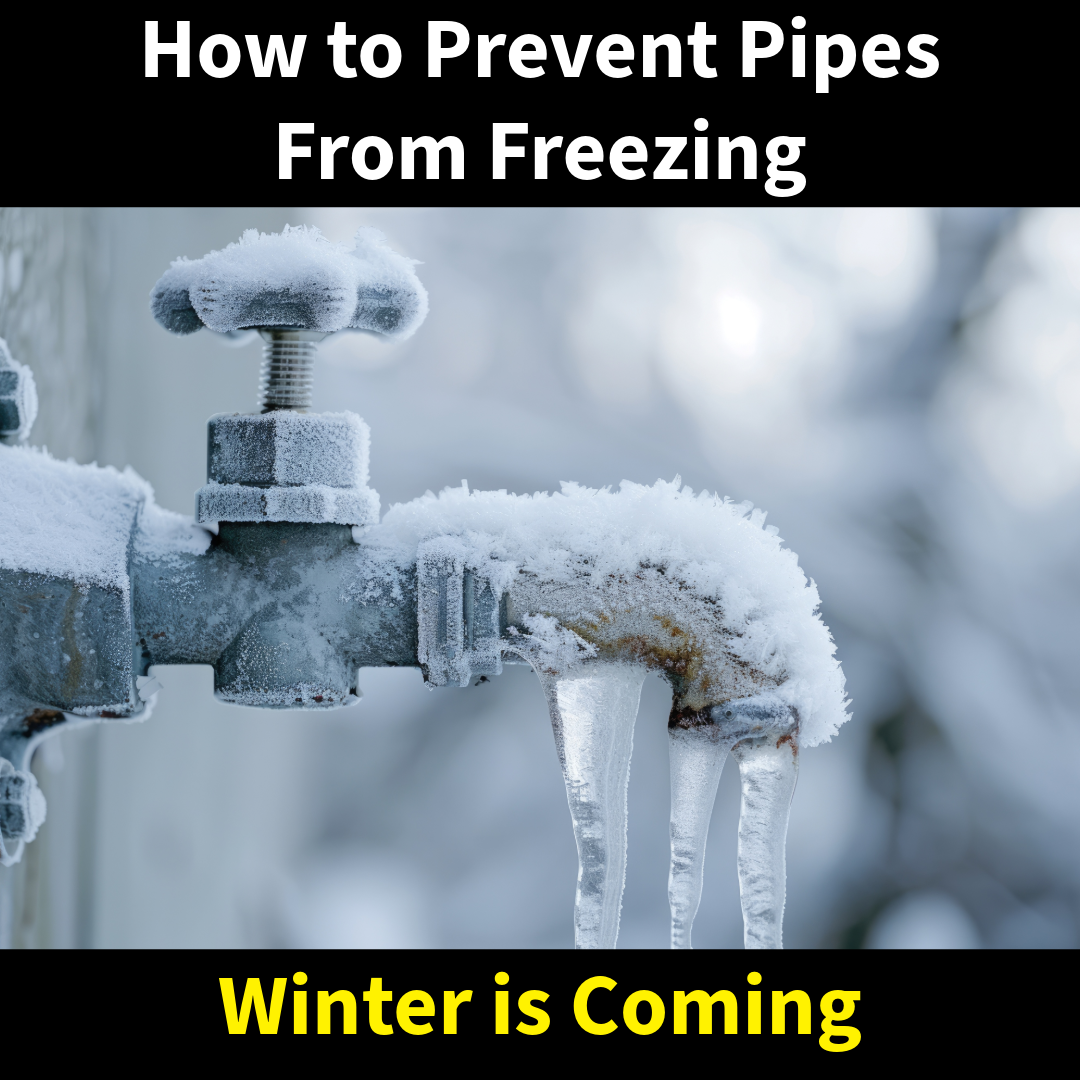Winter can be beautiful, but freezing temperatures pose a significant threat to your home’s plumbing system. Frozen pipes can burst, leading to extensive water damage and costly repairs. Luckily, with the right precautions, you can safeguard your pipes and keep your home warm and dry. Here’s a step-by-step guide to help you prevent frozen pipes this winter.
1. Insulate Exposed Pipes
Exposed pipes are the most vulnerable to freezing, especially those in unheated areas like basements, attics, garages, and crawl spaces.
- Use pipe insulation: Wrap pipes with foam insulation sleeves, fiberglass wrap, or even heat tape for added protection.
- Focus on vulnerable areas: Pay special attention to pipes along exterior walls or in colder zones of your home.
2. Seal Gaps and Cracks
Cold air can seep into your home through gaps and cracks, increasing the risk of frozen pipes.
- Seal exterior openings: Use caulk or spray foam to close gaps around windows, doors, and where pipes enter the home.
- Insulate your home: Add insulation to walls and attics to keep the cold out and the heat in.
3. Keep the Heat On
Consistent indoor temperatures are crucial to preventing frozen pipes.
- Set your thermostat: Maintain a temperature of at least 55°F (13°C) even if you’re away from home.
- Keep interior doors open: Allow warm air to circulate around pipes, especially those in cabinets or closets.
4. Let Faucets Drip
Running water is less likely to freeze, so keeping your faucets slightly open can help.
- Target vulnerable pipes: Let cold and hot water drip from faucets connected to exposed or exterior-facing pipes.
- Prevent pressure build-up: If a pipe does freeze, a dripping faucet can reduce the risk of it bursting.
5. Drain and Shut Off Exterior Water Lines
Water in outdoor pipes and hoses is highly susceptible to freezing.
- Disconnect hoses: Remove and store garden hoses before winter.
- Shut off outdoor valves: Turn off and drain water from outdoor spigots and sprinkler systems to prevent freezing.
6. Use Heat Tape or Heating Cables
These specialized tools can be a lifesaver for pipes in extremely cold climates.
- Apply heat tape: Wrap heat tape around pipes for direct warmth.
- Follow safety guidelines: Choose products with built-in thermostats for energy efficiency and safety.
7. Monitor Your Home During Extreme Cold
During severe cold snaps, it’s essential to stay vigilant.
- Check vulnerable pipes regularly: Inspect pipes in colder areas for signs of frost or ice.
- Prepare for emergencies: Keep a hairdryer or portable space heater on hand to thaw pipes safely if they begin to freeze.
8. Winterize Your Home Before Leaving
If you’re heading out of town during the winter, take extra precautions to prevent frozen pipes.
- Shut off the main water supply: This minimizes damage in case a pipe bursts.
- Drain your pipes: After shutting off the water, open all faucets to empty the lines.
- Leave the heat on: Set your thermostat to at least 55°F to keep your home warm.
Signs Your Pipes Might Be Frozen
If you notice any of the following, act quickly to prevent a burst pipe:
- Reduced or no water flow from faucets.
- Frost on visible pipes.
- Strange odors coming from your drains.
What to Do If Your Pipes Freeze
If you suspect a pipe has frozen:
- Turn off the water supply: Prevent pressure build-up in the pipes.
- Thaw pipes safely: Use a hairdryer or heating pad to warm the pipe gradually. Never use an open flame.
- Call a professional: If you can’t locate the frozen section or suspect damage, contact a plumber immediately.
Conclusion
Preventing frozen pipes requires a combination of preparation, insulation, and vigilance. By following these steps, you can protect your home from winter plumbing disasters and enjoy the season worry-free.
If you’ve already experienced frozen or burst pipes, Mold Solutions & Inspections is here to help! We specialize in water damage restoration and mold prevention in Bucks County, PA, and Delaware County, PA. Contact us today for professional assistance.
Need Help?
Call us at 877-712-1600 or visit WeAreMSI.com to schedule an inspection and protect your home this winter!
